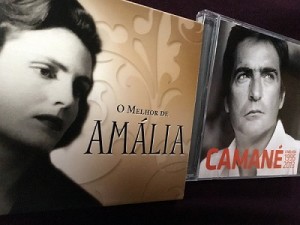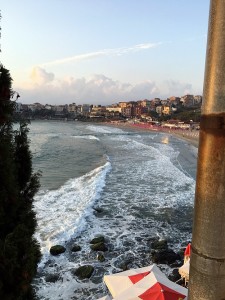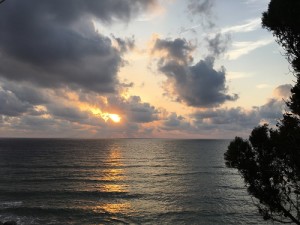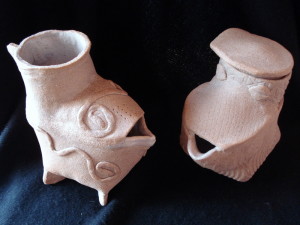A new class for first term beginning Bulgarian students in SEATTLE
starts on January 6, Friday
5:45-6:45 PM
Intermediate/Advanced class:
6:45-7:45 PM
Peet’s Coffee
6850 East Green Lake Way N, Seattle, WA 98115
A new class for first term beginning Bulgarian students in SEATTLE
starts on January 6, Friday
5:45-6:45 PM
Intermediate/Advanced class:
6:45-7:45 PM
Peet’s Coffee
6850 East Green Lake Way N, Seattle, WA 98115
Evening. Вечер.
Glass of wine. Чаша вино.
Fado. Фадо.

He and she have bought several CDs with Fado music from Lisboa.
Той и тя са купили няколко СД-та от Лисабон.
Pure joy. Истинска наслада.
Morning. Сутрин.
She (who is his Bulgarian language teacher only on Sunday and only in the afternoon) and he (who is her Bulgarian language student only on that day and only at that time) wake up.
Тя (която е негов преподавател по български език само в неделя и само следобед) и той (който е неин ученик само тогава и само по същото време) wake up (се събуждат).
She hears а voice. Тя чува глас:
Аз фадам
Ти фадаш…
Тя: Какво, какво?
Той: It comes from “Fado”, meaning, I am listening to Fado… Third group present tense verbs ending on „a“ for the third person singular: Той/тя/то фад¬а
From here for plural we have – aме, – ате, – ат:
Ние фадаме
Вие фадате
Те фадат
Тя: Well, dear, then we should use it in past simple tense:
Аз фадах
Ти фадаше
Той/тя/то фадаше
Ние фадахме
Вие фадахте
Те фадаха
Той: What have you done to me… I was such a normal person… Now I wake up conjugating verbs that don’t even exist… Отивам да направя кафе…
Аз бях на море. Заминах. Заминавах. Заминал/а съм. Заминавал/а бях.
Ти беше на море.

Ние бяхме
Вие бяхте
Те бяха
Ние бяхме на море. Ние заминахме. Заминавахме много пъти. Заминали сме… Заминали бяхме…
Now let’s look at the attachment:
Заминавам – замина
Благодаря, добре съм.
Добре сме. Много сме добре.
ЗАМИНАВАМ (ЗА)
To depart, to leave (for)…
Present Tense
IMPERFECTIVE ASPECT
Аз заминавам Ние заминаваме
Ти заминаваш Вие заминавате
Той Те заминават
Тя
То заминава
PERFECTIVE ASPECT
Аз (ще; искам да, мога да…) замина Ние (ще) заминем
Ти (ще) заминеш Вие (ще) заминете
Той Те (ще) заминат
Тя
То (ще) замине
Beginning level 5:45-6:45 PM
Intermediate/Advanced level 6:45-7:45 PM
First classes will be held at:
Kitanda Espresso & Açaí
Greenlake Village
428 NE 71st St.
Seattle, WA 98115
Join the joy of learning!
From mid-September, continuing into June…
For the next sessions and venues please contact Daniela at
d.ivanova-nyberg@hotmail.com

Фроги: Аз края, ти краеш…
Фиша: Не така, скъпи.
Фроги: Why not? Край! Крайте! Finish it!
Фиша: It might be logical to you, but „края“ – от „край“ – is not used as a verb in Bulgaria. We use „свършвам“, „завършвам“, „приключвам“… So we will have the following imperfective-perfective pairs:
свършвам – свърша
завършвам – завърша
приключвам – приключа
Фроги: „Приключвам” comes from „ключ“ – „a key“, да? To turn the key for closing the lock?
Фиша: Да.
Фроги: But what is the verb to turning the key to start a car?
Фиша: You can say „завъртвам ключа“ but people may use it again as an expression of closing the door, leaving. For cars Bulgarians use „запалвам“, „паля“колата, meaning “lighting the fuel, lighting the motor”.
Запалвам (несвършена форма; imperfective) – запаля (свършена форма; perfective)
Фроги: Боже, Боже…
Фиша: Добре, добре. Стига. Приключвам. Еnough… Достатъчно. Лято е. It’s time to
Да запалим с теб колата
И да отидем двама до реката…
……………………………………. скалата…
………………………………….… гората…
You say the ocean and I say морето
You say the coffee and I say кафето
Ocean, морето, coffee, кафето
Let’s call the whole thing off
You like bananas and I like кафанаs
You like Havana, I go to Бахама
Bananas, кафанаs, Havana, Бахама
Let’s call the whole thing off.
Refrain:
But oh, if we call the whole thing off
Then we must part
And oh, if we ever part, then that might break my heart…
Early morning. Ранно утро. The coffee is ready. Кафето е готово. Gary takes it with milk. Гари го пие с мляко. This provokes a conjugation of a verb for milking a cow. So it goes:
Aз млекя
Ти млекеш…
I interrupt this flow by asking “what do you mean?” (Какво имаш предвид?)
G.: Well, this should be the verb for milking a cow.
D: OK. It make sense… Има логика… But the actual verb is „ДОЯ“, with a stress on “я“.
G.: Ooooh, Do Ya? (Do I?) Ya, I do.
For now on the verb „ДОЯ“ will never be the same for me:)
Of course, we tried to learn the language via osmosis by just putting our heads together and waiting for the language flow to start. Sometimes it works, sometimes — doesn’t; other, not language-related thoughts begin flowing in both directions. This is “scary” (a quote by the other party). Anyway, the morning brought a couple of new hybrids:
Аз осмозя
Ти осмозиш
Той/тя/то осмози
Ние осмозим
Вие осмозите
Те осмозят
This is a perfect following of the rule to conjugate any verb from the second group (with an ending with “И”-for the third person singular, e.g. говоря, уча etc.).
After осмозя there was nothing that could stop Gary to continue contributing to language enrichment. The noun “collision” was turned into a Bulgarian verb perfectly by following the rule for the third group (with an ending with “A”-for the third person singular, e.g. закусвам, пазарувам etc.). Not only that, the two aspects of the verb were developed – imperfective колижвам and perfective колижа…, where the perfective verb follows the First group conjugation (with an ending with “E”-for the third person singular, e.g. чета, пиша, etc.)
And here we go:
Imperfective
Аз колижвам
Ти колижваш
Той/тя/то колижва
Ние колижваме
Вие колижвате
Те колижват
Imperative: Колижвай! Колижвайте!
Perfective
Аз ще колижа
Ти ще колижеш
Той/тя/то ще колиже
Ние ще колижем
Вие ще колижете
Те ще колижат
Imperative: Колижù! Колижèте!
The third verb that was twisted was related to making verbs:
Аз върбя
Ти върбиш
Той/тя/то върби
Ние върбим
Вие върбите
Те върбят
So, I guess, we can take this as an illustration of an artificial language game (as we have seen in the studies of language and culture)… Isn’t Bulgarian easy?